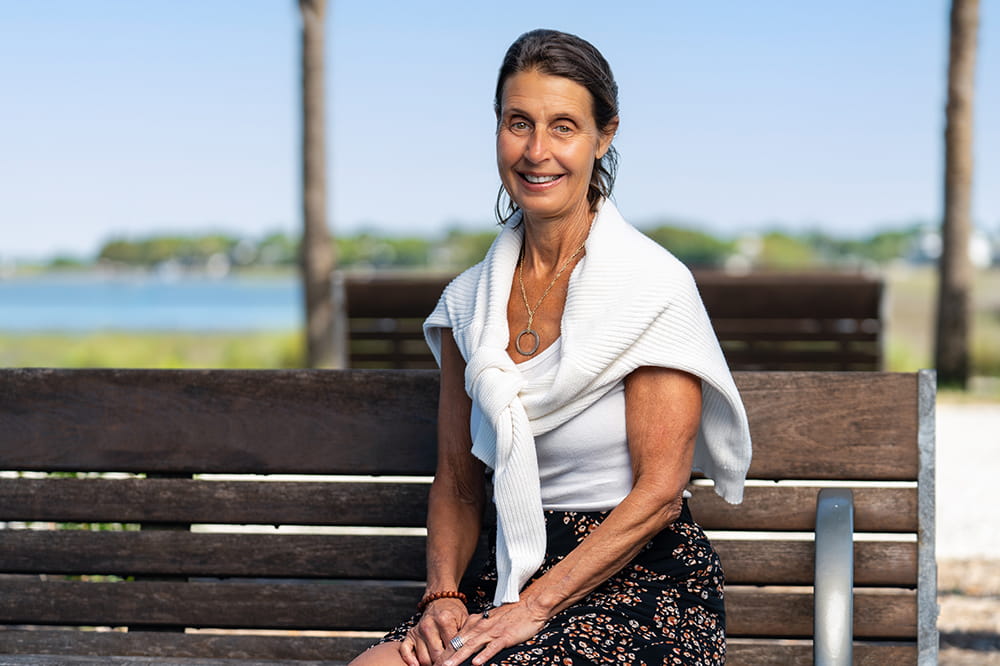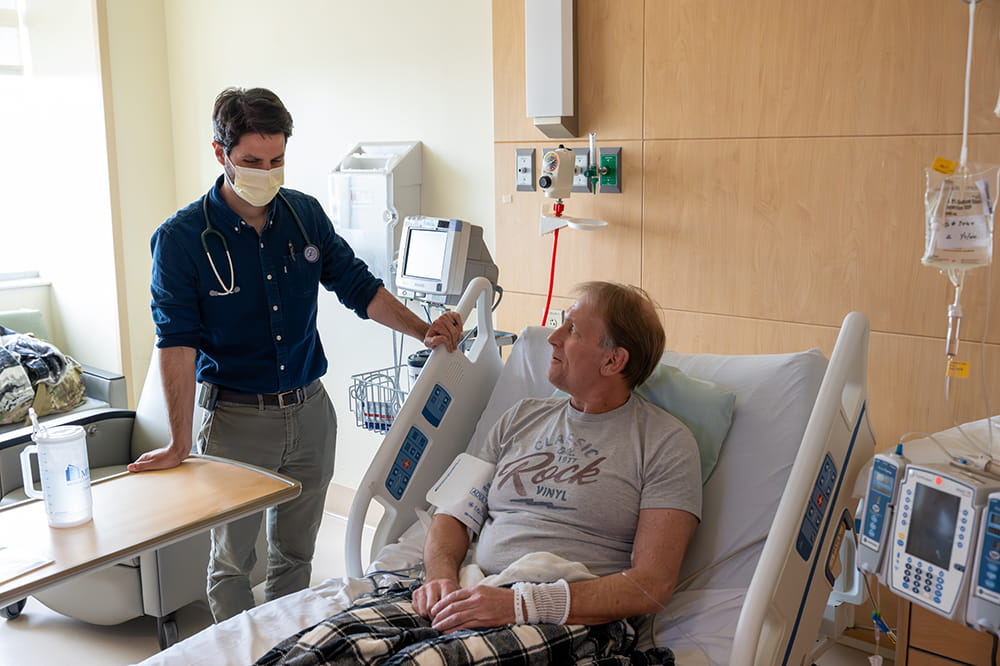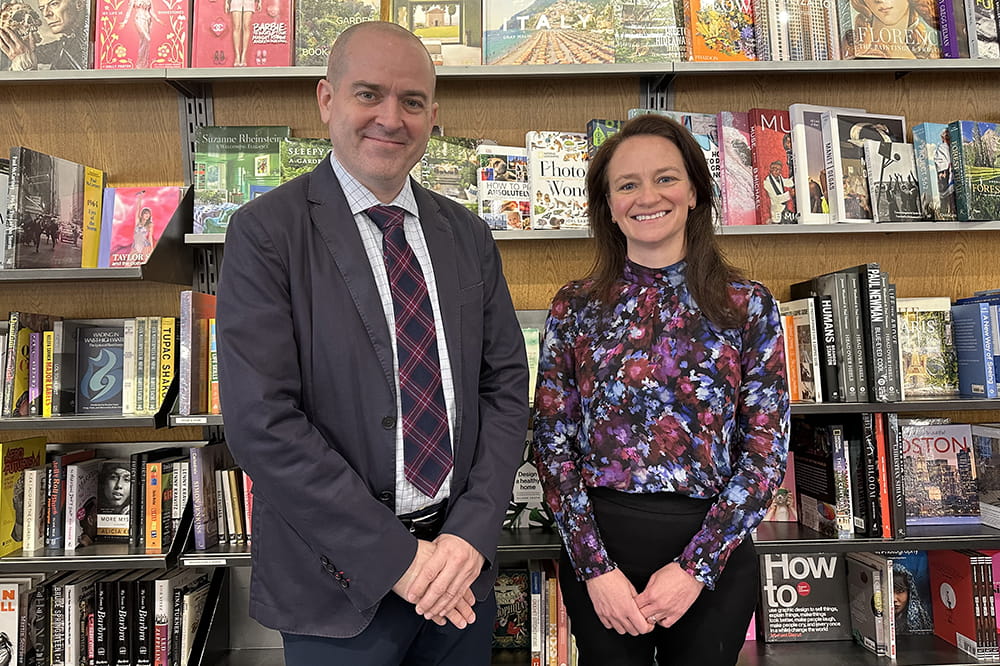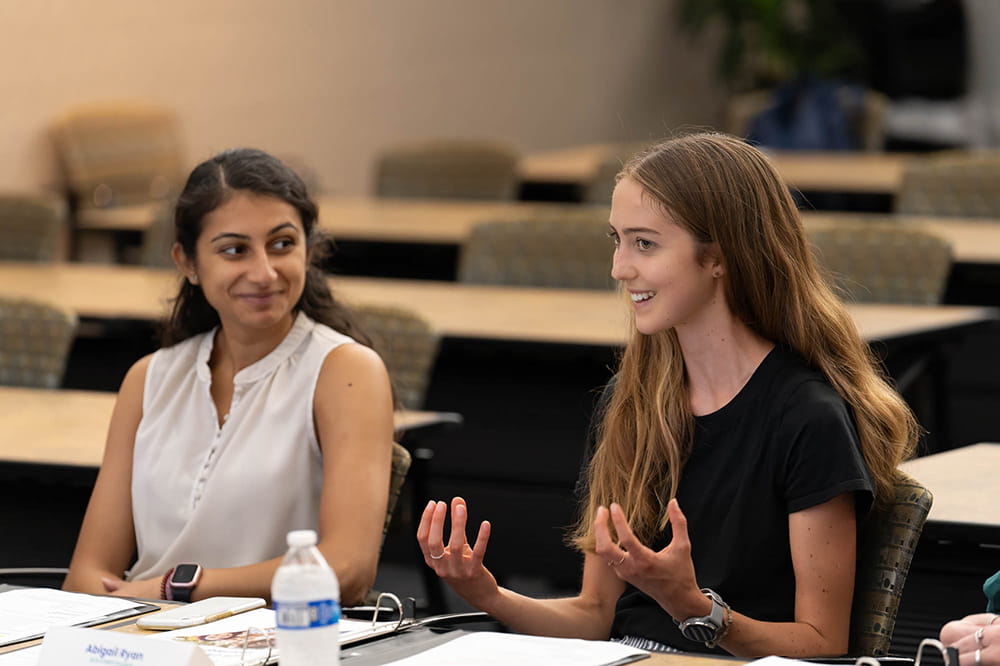Hollings Horizons
To read the digital version of Hollings Horizons magazine, click on the magazine cover below or visit our Hollings Horizons flipbook webpage.
Video Spotlight
For patients with non-metastatic liver cancer, pancreatic cancer, or stomach cancer, MUSC Hollings Cancer Center's Next-Day Access program offers appointments with a surgeon on the next business day in most instances. Our mission is to begin treatment as soon as possible. Walk through an appointment with the Next-Day Access team in this video.
Subscribe to Hollings Horizons
Sign up for our mailing list to receive the latest edition of Hollings Horizons magazine in print.
SubscribeDirector's Message — Winter 2025
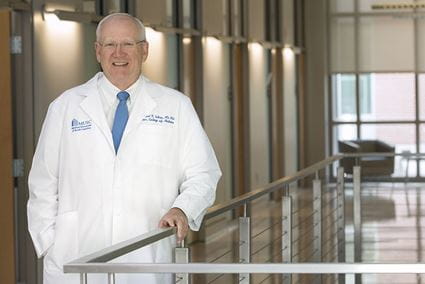
“Outstanding.”
That was the score that MUSC Hollings Cancer Center received at our National Cancer Institute-designation review in April 2024, the highest that the center has scored since first earning NCI designation in 2009. The Outstanding rating underscores our deep commitment to research and the tremendous progress we’ve made in cancer diagnosis, development, progression, treatment and treatment resistance over the last 15 years.
We’ve recently been focusing on translational research and have assembled a top-notch team of scientists who are motivated to see their work in the lab improve patient outcomes in our clinics. For example, we are having incredible success with our CAR-T clinical trial, an immunotherapy approach that channels the body’s own immune system to fight off cancer.
To make a greater impact on the health of our state, we are expanding clinical programs and services throughout South Carolina, such as our Next-Day Access program for abdominal cancers and our new bone marrow transplant clinic.
And, we are helping cancer survivors by providing them with resources like physical therapy, financial counseling, and psychological support services.
The highlights showcased in these pages represent the range of inventive, creative work happening here at Hollings. Our researchers and clinicians are continually seeking ways to understand cancer, improve treatments and, ultimately, to prevent it. We have come a long way in the last 15 years, but we still have a long way to go. We are excited about tackling the challenges that lie ahead.
Best Wishes,
Raymond N. DuBois, M.D., Ph.D.
Director, MUSC Hollings Cancer Center
Associate Provost of Cancer Programs, MUSC

